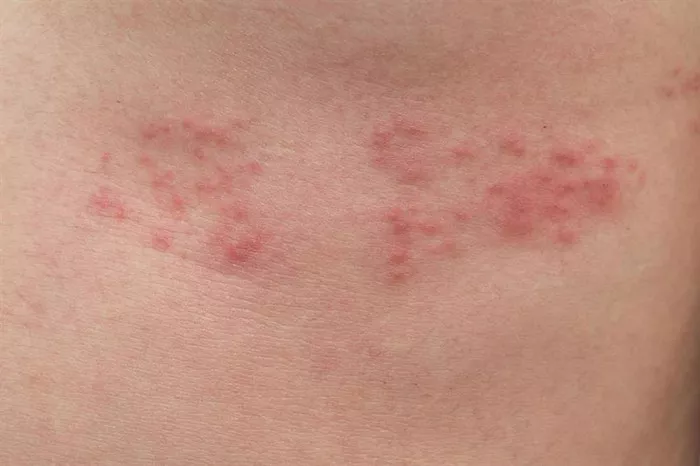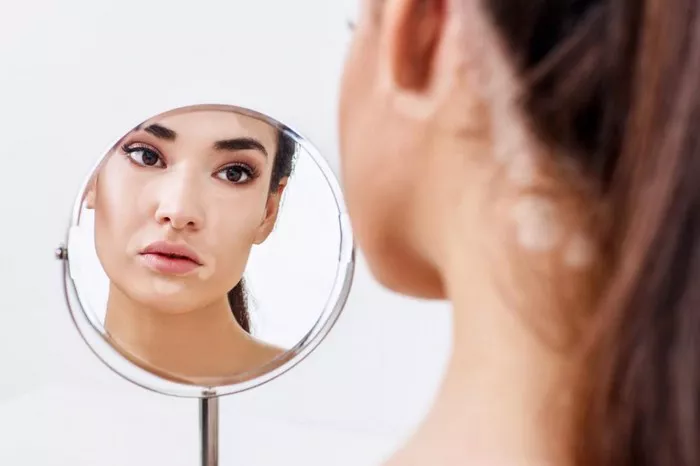Herpes zoster, also known as shingles, is a viral infection that affects the skin and nerves. It causes a painful rash, usually on one side of the body, and can lead to serious complications, especially in adults. This condition is caused by the same virus that causes chickenpox, called the varicella-zoster virus (VZV). Although the virus is well-known for causing chickenpox in children, it can remain dormant in the body and reactivate later in life, leading to shingles.
In this article, we will explore what causes herpes zoster in adults, the risk factors, and the ways to prevent and manage this painful condition.
What Is Herpes Zoster?
Herpes zoster is a reactivation of the varicella-zoster virus (VZV), which is the same virus responsible for chickenpox. After someone recovers from chickenpox, the virus does not leave the body entirely. Instead, it stays dormant in the nerve tissue. The virus can reactivate later in life, particularly in adults, causing shingles.
Shingles typically appear as a painful, blistering rash on one side of the body, often around the torso or face. The rash is usually accompanied by a burning or tingling sensation. The pain from shingles can be intense, sometimes lasting for weeks or even months. For some people, the pain can continue long after the rash has healed, a condition known as postherpetic neuralgia.
How Does the Virus Reactivate?
After a person has chickenpox, the varicella-zoster virus retreats to the nerve tissue near the spinal cord and brain. This is known as a latent infection. The virus can remain inactive for many years, and most people never experience shingles. However, for reasons that are not entirely understood, the virus can reactivate later in life, causing shingles.
The reactivation of the virus often occurs when the immune system is weakened or compromised. This can be due to several factors, which we will discuss below.
Weakening of the Immune System
One of the main reasons the varicella-zoster virus reactivates in adults is because of a weakened immune system. The immune system helps keep the virus in check while it is dormant. However, when the immune system becomes weakened, the virus can reactivate. Some of the common factors that can weaken the immune system include:
Age: As people get older, their immune systems naturally become weaker. This is one of the main reasons why shingles is more common in adults over the age of 50.
Chronic Illnesses: Conditions such as diabetes, cancer, HIV, and autoimmune diseases can weaken the immune system, making it easier for the varicella-zoster virus to reactivate.
Medications: Certain medications that suppress the immune system, such as corticosteroids, chemotherapy drugs, or immunosuppressants used to treat autoimmune diseases, can make people more susceptible to shingles.
Stress: Both physical and emotional stress can affect the immune system. Prolonged stress can lead to an increased risk of shingles by weakening the body’s natural defense mechanisms.
Infections: Any infection that impacts the immune system, such as the flu or pneumonia, can increase the likelihood of developing shingles.
Risk Factors for Developing Herpes Zoster
While the varicella-zoster virus can remain dormant in everyone who has had chickenpox, certain factors increase the likelihood of reactivation. These risk factors include:
Age: The risk of developing shingles increases with age, especially after the age of 50. This is because the immune system tends to weaken over time, and older adults are more vulnerable to infections.
Having had Chickenpox: People who have had chickenpox at any point in their life are at risk for developing shingles later on. However, if a person has never had chickenpox, they cannot develop shingles, though they may contract chickenpox if exposed to the virus.
Weakened Immune System: As mentioned earlier, individuals with compromised immune systems are at greater risk. This includes people with HIV/AIDS, cancer, or autoimmune disorders, as well as those undergoing treatments like chemotherapy or taking immune-suppressing medications.
Emotional and Physical Stress: Stress, both emotional and physical, can trigger the reactivation of the virus. The stress response can weaken the immune system, allowing the virus to emerge from its dormant state.
Gender: Some studies suggest that women may be at a slightly higher risk of developing shingles than men, though the reasons for this difference are not fully understood.
Genetics: Some genetic factors may play a role in determining who develops shingles and who does not. Family history may increase the likelihood of reactivation in some people.
How Does Herpes Zoster Spread?
Herpes zoster is not as contagious as chickenpox, but it can spread to people who have never had chickenpox or the chickenpox vaccine. The virus can be spread through direct contact with the fluid from the blisters that appear in the shingles rash. However, the virus cannot spread through the air like the flu or cold.
If someone who has never had chickenpox comes into contact with the fluid from shingles blisters, they could develop chickenpox, not shingles. The person with shingles is contagious until all the blisters have scabbed over.
People with weakened immune systems, infants, and pregnant women should avoid contact with someone who has shingles.
Symptoms of Herpes Zoster
The symptoms of herpes zoster can vary in severity. Early signs often include:
Pain, Burning, or Tingling: Many people feel pain, burning, or tingling in a specific area of the skin before the rash appears. This is often the first sign that shingles is coming.
Rash: A red, blistering rash typically develops within 2-3 days after the pain starts. The rash usually appears on one side of the body, often on the torso, face, or neck.
Fever and Fatigue: Some people experience flu-like symptoms such as fever, fatigue, and headache before the rash develops.
Itching: The rash can become very itchy as it heals. Scratching the rash can cause further irritation or even lead to a bacterial infection.
Postherpetic Neuralgia: For some people, the pain continues even after the rash has healed. This condition, known as postherpetic neuralgia, occurs when the nerves remain damaged after the rash has gone away. This can cause persistent pain, tingling, or sensitivity in the affected area.
How Is Herpes Zoster Diagnosed?
To diagnose herpes zoster, a healthcare provider will typically examine the rash and ask about the patient’s medical history. If the diagnosis is unclear, the doctor may take a sample from the rash to test for the varicella-zoster virus. Blood tests may also be used in some cases to check for the presence of the virus or antibodies.
Prevention of Herpes Zoster
While there is no surefire way to prevent shingles, there are steps that can reduce the risk of developing the condition. One of the most effective ways is through vaccination.
Shingles Vaccine: The shingles vaccine is recommended for adults over the age of 50, even if they have had shingles before. The vaccine can help reduce the risk of developing shingles and can also make the symptoms less severe if shingles does occur. The vaccine is usually given in two doses, spaced a few months apart.
Good Immune Health: Maintaining a healthy immune system through a balanced diet, regular exercise, adequate sleep, and stress management can reduce the likelihood of the virus reactivating.
Avoiding Contact with Infected Individuals: Since the virus is contagious, it’s important to avoid close contact with people who have active shingles if you have never had chickenpox.
Treatment for Herpes Zoster
If you develop shingles, there are treatments that can help reduce the severity and duration of the illness. Antiviral medications like acyclovir, valacyclovir, or famciclovir can help to shorten the outbreak if started early, preferably within 72 hours of the onset of the rash.
Other treatments include:
Pain Relief: Over-the-counter pain medications like ibuprofen or acetaminophen can help manage the pain. In some cases, stronger painkillers may be prescribed.
Topical Treatments: Calamine lotion or cool compresses may be used to soothe the rash and relieve itching.
Preventing Postherpetic Neuralgia: Early antiviral treatment may reduce the risk of developing postherpetic neuralgia, but some people still experience long-term pain.
Conclusion
Herpes zoster in adults is caused by the reactivation of the varicella-zoster virus, the same virus responsible for chickenpox. It is most common in older adults and people with weakened immune systems. Although shingles can be painful and disruptive, there are vaccines and treatments available to reduce the risk of infection and manage symptoms. If you are at risk for shingles, it’s important to speak with your healthcare provider about prevention strategies, including the shingles vaccine.
Related topics:


























